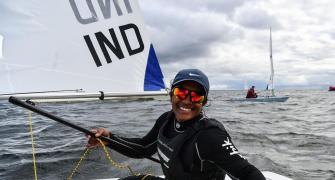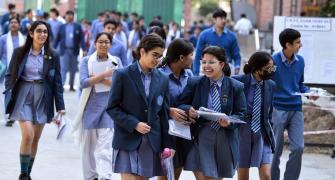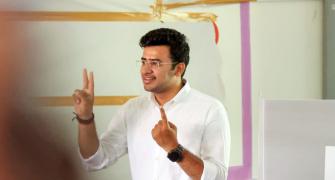Those in the reckoning for the World Economic Forum's Indian Social Entrepreneur of the Year 2006 award, to be announced on Monday by Sonia Gandhi, are Amitabha Sadangi of International Development Enterprises India based in Delhi; the husband-wife team of Padmanabha Rao and Rama Rao of Rishi Valley Institute for Educational Resources, Madanpalli, Andhra Pradesh; S. Rajagopalan and Svati Bhogle of Technology Informatics Design Endeavour, Bangalore; and Vikram Akula of SKS Microfinance Private Limited, Hyderabad, according to WEF.
IDEI has developed and marketed affordable small-plot micro-irrigation technologies to India's marginal and small farmers.
The technologies are commercially viable, one-fifth the cost of its competitors and scaled down to fit one-tenth of a hectare plots.
Delivered at unsubsidised market prices through village market supply chains to farmers who earn less than one dollar a day, they have vastly improved their agricultural productivity, strengthened their food security bases, integrated them into rural markets and lifted them out of poverty.
IDEI launched in India in 1991 as a liaison office of the Canadian IDE, and in 2001, IDE India (IDEI) became an independent Indian registered organisation.
RIVER, established in 1987, has developed a multi-grade, multi-level (MGML) model of primary education that arrests the multiple barriers faced by marginalized groups in getting quality education for their children.
RIVER schools follow the curriculum laid out by the government, but they work without text books. They have one teacher and are designed to integrate children from different grades and different learning abilities in the same room.
The curriculum is graded for individual levels of learning, grounded in up-to-date information and framed in the local idiom. Attendance is above 95 per cent and drop-out rates lower by 25 per cent than non-formal education centres in other parts of the country.
TIDE, established in 1993, promotes sustainable development through technological interventions, focusing on technologies that are suitable for the rural environment, address energy issues and help create rural entrepreneurs. TIDE has established nearly twenty enterprises, whose collective turnover last year was Rs 15 million.
It identifies economically rewarding, environment-friendly technologies invented in India's research institutions, and develops them into successful enterprises.
Among the technologies it has promoted are energy-efficient stoves developed for informal industry sectors like ayurvedic medicine preparation, rubber band making, areca boiling, textile processing, post-harvest processing, fish drying,and sericulture. All these products save at least 25 -30 per cent fuel.
SKS Microfinance applies global business practices to the field of microfinance, and since it was establishment in 1998, has benefited approximately 1.5 million individuals through income-generating loans.
Its founder, Vikram Akula, who was born in Hyderabad and moved to the US when he was only 3 years old is a former management consultant with McKinsey & Company. He was a Fulbright Scholar in India, during which he coordinated an action-research project on providing micro-credit for food security.








